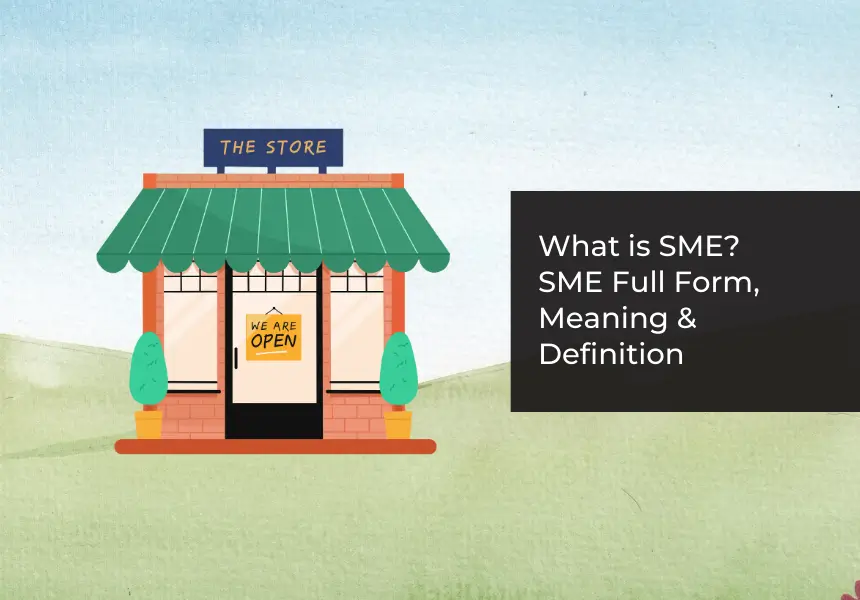
Running a small business comes with its fair share of challenges, and one of the biggest hurdles many face is delayed payments. When payments from clients are held up, it can mess with the cash flow, making it tough to cover expenses and plan for growth. This is especially true for MSMEs, who often find themselves waiting far too long for what they are owed.
To avoid this, the 45-Day MSME Payment Rule has been introduced. This rule will ensure that payments for goods and services must be made within 45 days, providing small businesses with the timely cash flow they need to stay on track. With this guarantee, MSMEs no longer have to chase after overdue invoices or deal with the uncertainty of delayed payments. Instead, they can focus on growing their business and improving their services.
Read on to understand how the 45-Day MSME Payment Rule can help small businesses like yours!
Scope of MSME Payment Rule
The MSME Payment Rule is applicable broadly to all transactions that involve Micro, Small, and Medium Enterprises, irrespective of whether these engagements are made with public sector entities or private organizations. It covers a huge range of business arrangements, such as supply agreements, service contracts, subcontracting deals, and procurement activities. The main aim is to ensure timely payments, maintain financial stability and introduce growth opportunities for MSMEs across various sectors and industries.
This rule helps reinforce the government’s commitment to protecting MSMEs, which are often vulnerable to delayed payments, thereby enhancing their operational efficiency and economic contribution.
Key Components of MSME Payment Rule
The MSME Payment Rule is introduced to keep the interests of Micro, Small, and Medium Enterprises safe by ensuring timely payments and promoting fair business practices. Here are the key components of this rule:
1. Definition of MSMEs
The MSME rule for payment clearly defines which businesses qualify as MSMEs. This helps in identifying which businesses are eligible under this rule.
2. Prescribed Payment Timelines
To prevent any delays in the payment, this rule mandates a maximum credit period within which buyers must clear their dues to MSMEs. This timeline helps in maintaining liquidity and financial stability for smaller businesses.
3. Consequences for Non-Compliance
If buyers do not pay within the set timeframe, they may face penalties, such as interest charges on the overdue amount. This encourages them to pay on time.
4. Grievance Redressal Mechanisms
If there are any payment delays or disputes, MSMEs can use specific systems to resolve these issues. This gives them a way to get help if they face problems with payments.
5. Stakeholder Awareness Programs
The rule also includes programs to educate both MSMEs and buyers about their rights and responsibilities. These programs help everyone understand the payment process and avoid misunderstandings.
Benefits of Complying with MSME Payment Rule
The MSME new rule for payment is introduced to ensure fair and timely financial practices, benefiting not only the MSME sector but also contributing to a healthier economic environment. Here are some of its benefits:
1. Timely Payments for MSMEs
The MSME payment rule guarantees that small businesses receive their dues within the set timeframe. This helps in reducing the risk of delayed payments, allowing MSMEs to maintain a steady cash flow and achieve financial stability.
2. Improved Business Operations
Once the payments are made on time, MSMEs will be able to allocate resources more effectively. This helps in minimizing the disruptions caused by financial uncertainties and enhances overall operational efficiency, allowing businesses to meet their obligations without unnecessary delays.
3. Strengthened Trust and Relationships
When buyers comply with the MSME 45 days payment rule, it fosters a sense of reliability and trust between the two parties. This confidence-building measure encourages MSMEs to collaborate more openly, strengthening long-term business relationships and partnerships.
4. Enhanced MSME and Economic Growth
Immediate payments help MSMEs grow and scale smoothly, directly contributing to job creation and innovation. A growing MSME sector helps in economic progress, driving both regional and national development.
Challenges and Concerns of MSME Payment Rule
The MSME sector plays an important role in driving economic growth. However, the MSME rule for payments often comes with certain challenges in implementation. These include:
1. Limited Awareness among MSMEs
One of the major challenges is the lack of awareness about the MSME payment rule. Many business owners are unaware of their rights or the obligations of their buyers.
2. Weak Enforcement Mechanisms
While the MSME rule specifies penalties for delayed payments, enforcing these penalties can be problematic. Often, grievance redressal mechanisms are slow, making it difficult for businesses to recover dues in a timely manner. This weak enforcement undermines the very purpose of the regulations.
3. Complex Dispute Resolution Processes
Resolving disputes related to payments can be a time-consuming and resource-intensive process. The lengthy procedures not only drain financial resources but also divert focus from core business activities.
4. Impact on Business Relationships
Strict enforcement of payment terms may strain relationships between buyers and sellers. Buyers may view rigid payment demands as inflexible, potentially affecting the quality of future transactions or leading to a loss of business opportunities.
What is Section 43B(h)?
Section 43B(h) of the Income Tax Act, introduced in the Finance Act of 2023, requires businesses to pay their MSME suppliers within 45 days from the invoice date or the agreement terms. This rule took effect from April 1, 2024.
If businesses don’t make the payment within 45 days, they can’t deduct the expense from their taxable income for that year. They can only claim the deduction in the year they actually pay, which means they may end up paying more taxes in the short term.
This rule is meant to ensure businesses pay MSMEs on time, helping small businesses with cash flow. It also helps businesses stick to fair payment practices. If there is no written agreement, the payment must be made within 15 days.
MSME 45 Days Payment Rule
To put it simply, the 45-Day MSME Payment Rule helps small businesses get paid faster. It says that buyers must pay MSMEs within 45 days of receiving and accepting the goods or services. This rule ensures that small businesses don’t have to wait too long for payments, which helps them manage their money and grow without needing expensive loans.
For larger companies, paying on time has benefits too. They can reduce their taxable income by deducting the payment they make to MSMEs as long as they pay within the 45-day period. If a company doesn’t follow the 45-day rule, they can face penalties, which pushes them to pay quickly and maintain good financial practices.
How does MSME Payment Rule affect small businesses?
The 45-Day MSME Payment Rule has a significant impact on small businesses, especially when it comes to improving financial stability and fostering business growth. Here’s how it affects small businesses:
1. Improved Cash Flow
The rule accelerates payments to MSMEs, helping them maintain a steady flow of cash. This enables small businesses to cover operational expenses on time, invest in growth opportunities, and expand their operations.
2. Reduced Financial Stress
One of the major benefits of the 45-day rule is the reduction in financial stress. With a guarantee of timely payments, small businesses experience less uncertainty and greater financial resilience, making it easier to plan and execute business strategies without worrying about delayed payments.
3. Better Bargaining Power
Small businesses now have a stronger position in negotiations, as they can expect prompt payments. This gives them an upper hand when negotiating terms with suppliers or clients, leading to better deals and stronger business relationships.
4. Reduced Disputes
The 45-day rule helps minimize conflicts over late payments, as both parties are bound by a set timeframe. This promotes smoother transactions, enhancing trust and cooperation between businesses and their partners.
Summary
To wrap up, the MSME Payment Rule is established to ensure timely payments and help small businesses maintain a steady cash flow, reduce their financial stress and build strong, reliable relationships with clients and suppliers. With aligned financial certainty, MSMEs can focus on growth, innovation, and scaling their operations without the constant worry of overdue payments.
However, if you’re looking to grow or scale your business, timely payments are just one part of the equation. Sometimes, additional financial support is needed to grab opportunities and drive expansion. For this reason, LoanTap’s MSME loans offer the financial breathing room that your business needs. Whether it’s expanding your operations, managing cash flow, or investing in new opportunities, with LoanTap, you can secure up to ₹10 lakh at competitive interest rates.
Frequently Asked Questions
What are the penalties for late payments under the MSME Payment Rules?
In addition to interest charges, buyers may face other penalties, including legal action if they repeatedly fail to pay MSMEs on time.
How is the interest for late payments calculated?
The interest on late payments is usually calculated at a rate that is three times the bank rate set by the Reserve Bank of India (RBI).
What is the grievance redressal mechanism for MSMEs?
MSMEs can approach various government agencies or dispute resolution mechanisms to address issues related to delayed payments. These processes help resolve disputes without lengthy court procedures.
What documents are required for filing a complaint?
MSMEs typically need to provide documents such as invoices, delivery receipts, and communication records with the buyer when filing a complaint for delayed payments.
Do MSMEs need to register for the MSME Payment Rule?
No, MSMEs do not need separate registration for the payment rule. They are automatically protected under the law if they meet the criteria for MSME classification.
Is the 45-day payment rule applicable to all buyers?
Yes, the 45-day payment rule applies to all buyers who engage with MSMEs, whether they are private businesses or government entities. However, government entities may have different timelines depending on their procurement policies.








